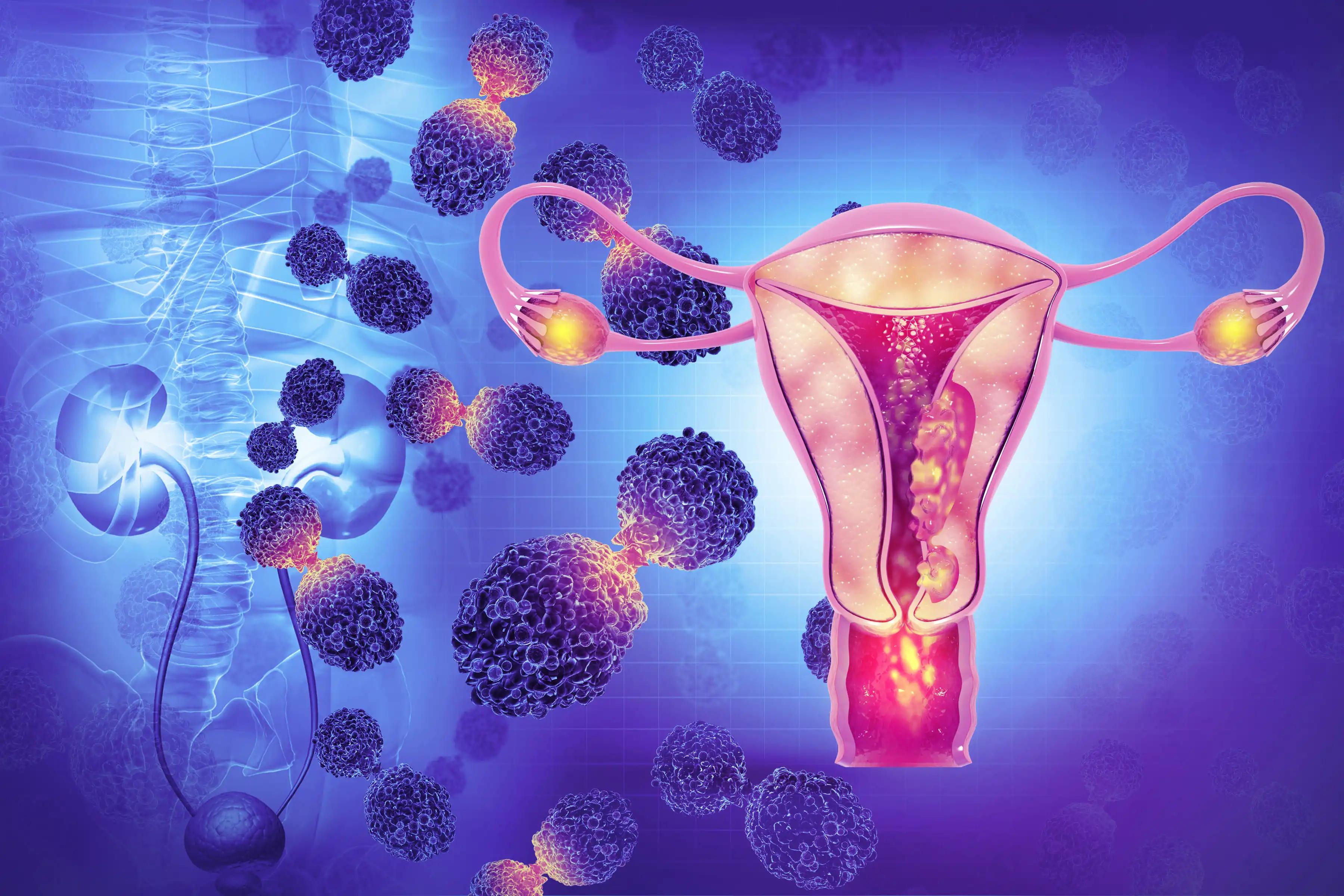KEY TAKEAWAYS
- The phase 2 trial aimed to investigate the efficacy and safety of the combination of avelumab and axitinib as a potential treatment option in recurrent or pMMR EC pts.
- The co primary endpoints were PFS and ORR.
- Researchers noticed promising outcomes as study met its primary endpoints; further investigation is ongoing.
Despite advancements in understanding the molecular pathogenesis of Endometrial Cancer
(EC), effective recurrence therapies remain limited. Pembrolizumab/lenvatinib demonstrated activity in a phase 3 trial for pMMR EC (NCT03517449), yet concerns persist regarding its toxicity. Avelumab (anti-PD-L1) combined with axitinib, a more potent inhibitor of VEGFR 1-3 and PDGFR than lenvatinib, has shown synergistic activity.
Elizabeth K. Lee and the team hypothesized that the combination would be well tolerated and efficacious in recurrent pMMR EC. This non-randomized two-stage phase 2 study evaluated the activity of avelumab and axitinib in patients (pts) with pMMR EC, with co-primary endpoints including the frequency of pts surviving progression-free for at least 6 months (PFS6) and the objective response rate (ORR) measured by RECIST 1.1.
Researchers performed an inclusive analysis to determine the eligibility criteria for participants, including the requirement of pMMR EC and prior chemotherapy regimen, while excluding prior use of immune checkpoint inhibitors (ICI). Eligible pts received avelumab intravenously at 800 mg IV every 2 weeks and axitinib orally at 5 mg twice daily until disease progression or unacceptable toxicity.
The study employed a two-stage design, with the first stage enrolling 16 pts. If there were ≥2 objective responses or ≥2 PFS6 responses, accrual continued to the second stage, where an additional 19 pts were enrolled. The combination of avelumab and axitinib would be considered worthy of further study if there were ≥4 objective responses or ≥8 PFS6 responses overall.
About 28 pts received study treatment as of the data cutoff in September 2022. One patient withdrew from the study due to toxicity before the first radiographic assessment. The median number of prior lines of treatment was 1 (range 1-4), with a median follow-up of 12.7 months. Among the pts, 57% (16/28) were White and 32% (9/28) were Black. Histologic subtypes included endometrioid (25%), serous (43%), carcinosarcoma (14%), clear cell (7%), and mixed (11%).
Of the 28 pts receiving study treatment, 1 pt (39.3%, 95% CI 21.5%-59.4%) achieved a PR [11/28; 8 confirmed PR (28.6%) and 3 unconfirmed PR (10.7%)]. Responders included those with serous (4 pts), carcinosarcoma (3 pts), endometrioid (3 pts), and mixed histologic subtypes (1 pt).
Additionally, 39.3% (11/28) had stable disease as their best response. The median PFS was 7.3 months (95% CI 3.9-9.0), with a PFS6 of 59.3% (95% CI 35.7%-76.7%) and at 6 months, 10 pts were still alive and progression-free.
Treatment-related adverse events (TRAEs) were predominantly Grade (G) 1-2; the most common were fatigue (50%), diarrhea (39%), and anorexia (32%). The most frequent G3 TRAEs were hypertension (39%), ALT increase (7%), AST increase (7%), and infusion reactions (7%). Ongoing immunogenomic studies and final efficacy and safety data will be reported.
The study reported that with 8 confirmed PRs and 10 PFS6 responses, the co-primary endpoints were achieved. The combination of avelumab/axitinib is deemed worthy of additional investigation in this population of pMMR EC.
The trial was sponsored by the Dana-Farber Cancer Institute.
Source: https://sgo.planion.com/Web.User/AbstractDet?ACCOUNT=SGO&ABSID=443725&CONF=AM2024&CKEY=
Clinical Trial: https://clinicaltrials.gov/study/NCT02912572
Lee E.K, Xiong N, Cheng S C, et al. (2024). “A phase II, two-stage study of avelumab and axitinib among patients with mismatch repair proficient recurrent or persistent endometrial cancer: Final efficacy analysis and correlative studies.” Presented at SGO 2024 (Abstract 2123).



